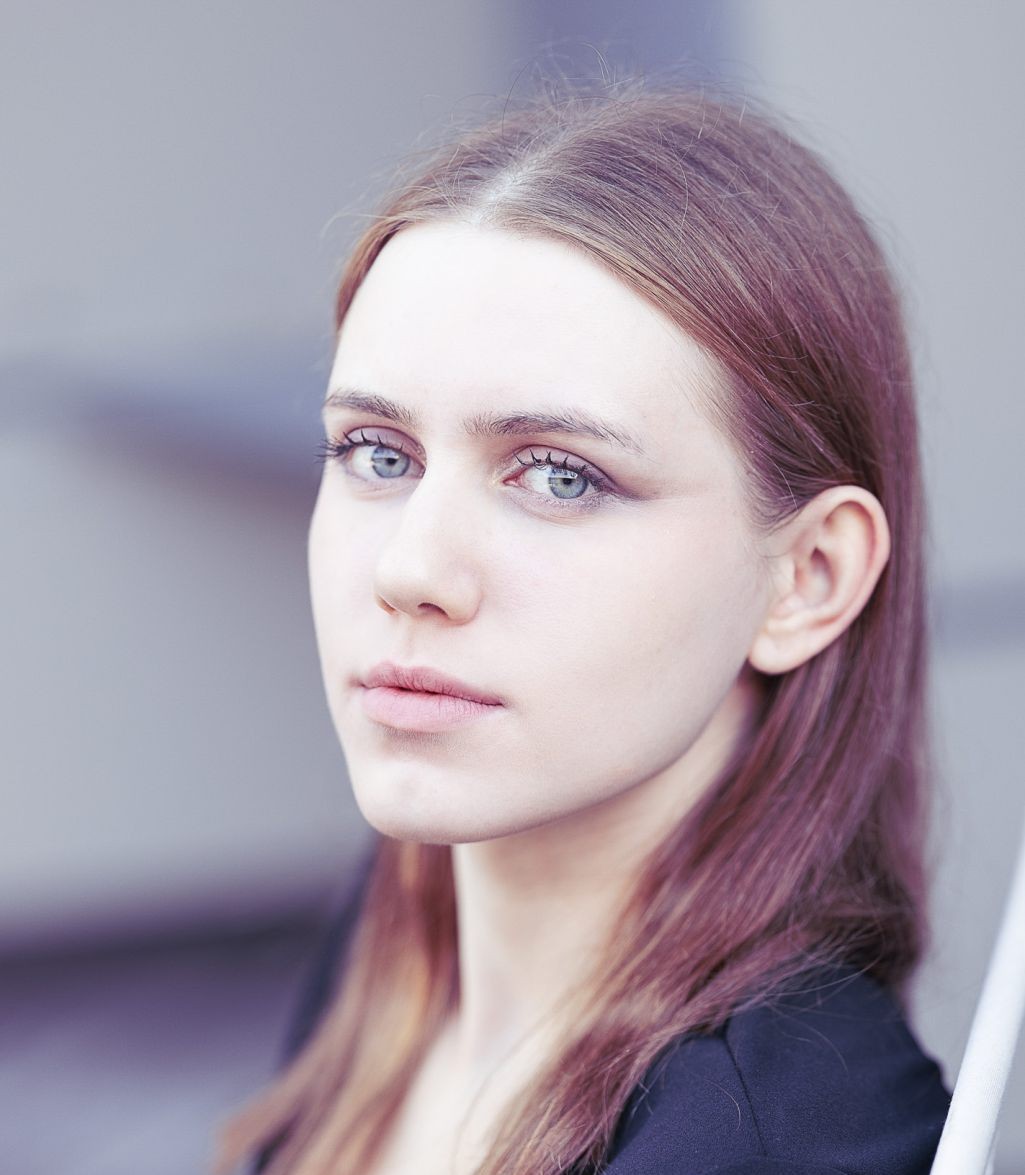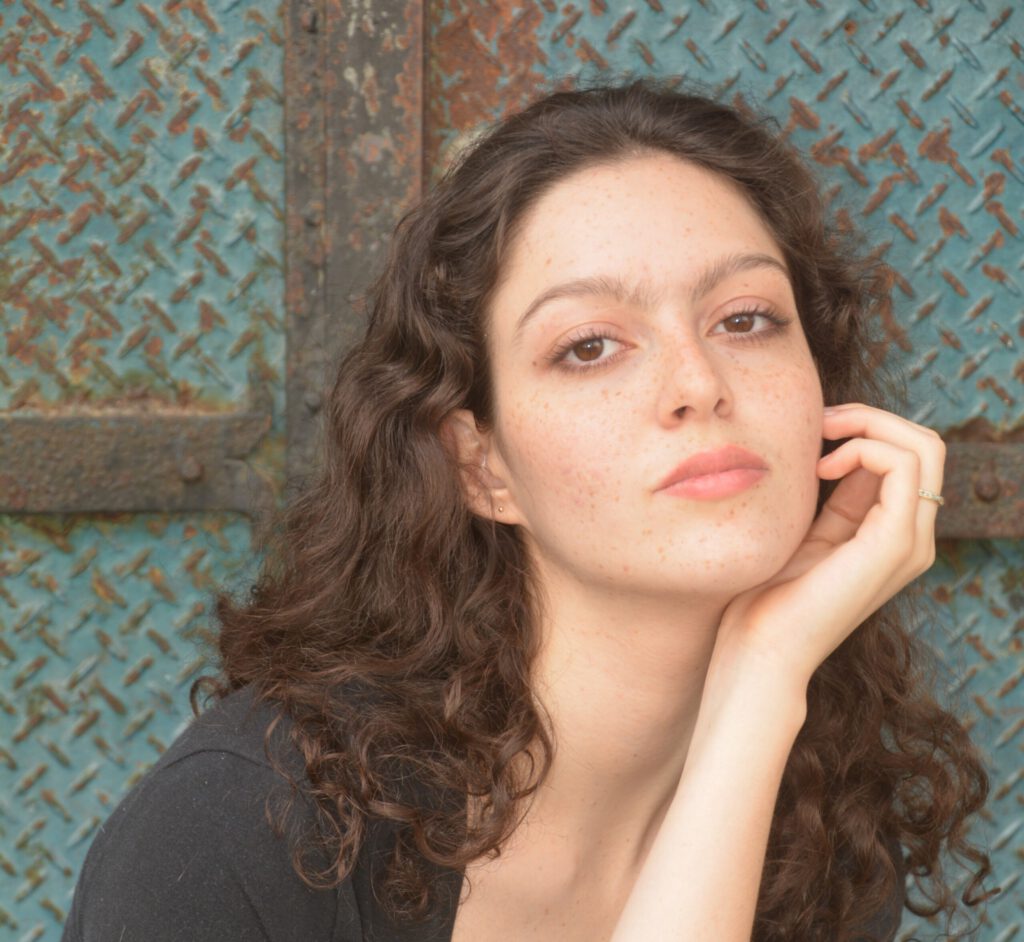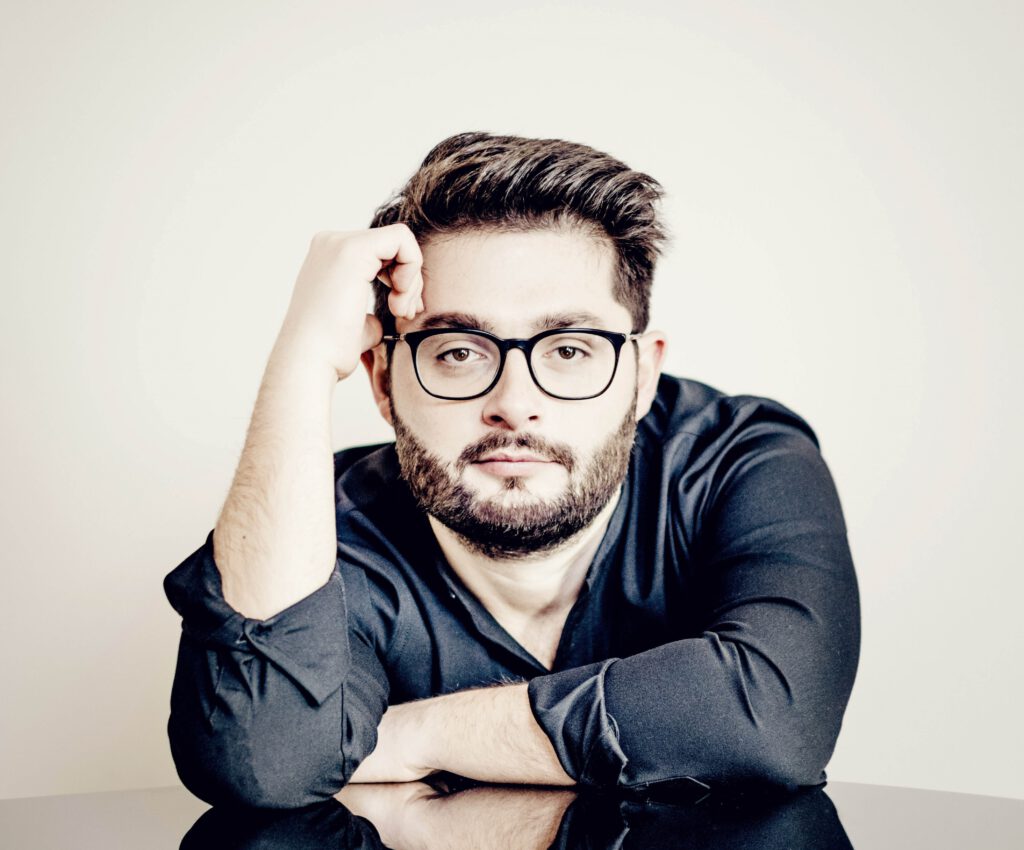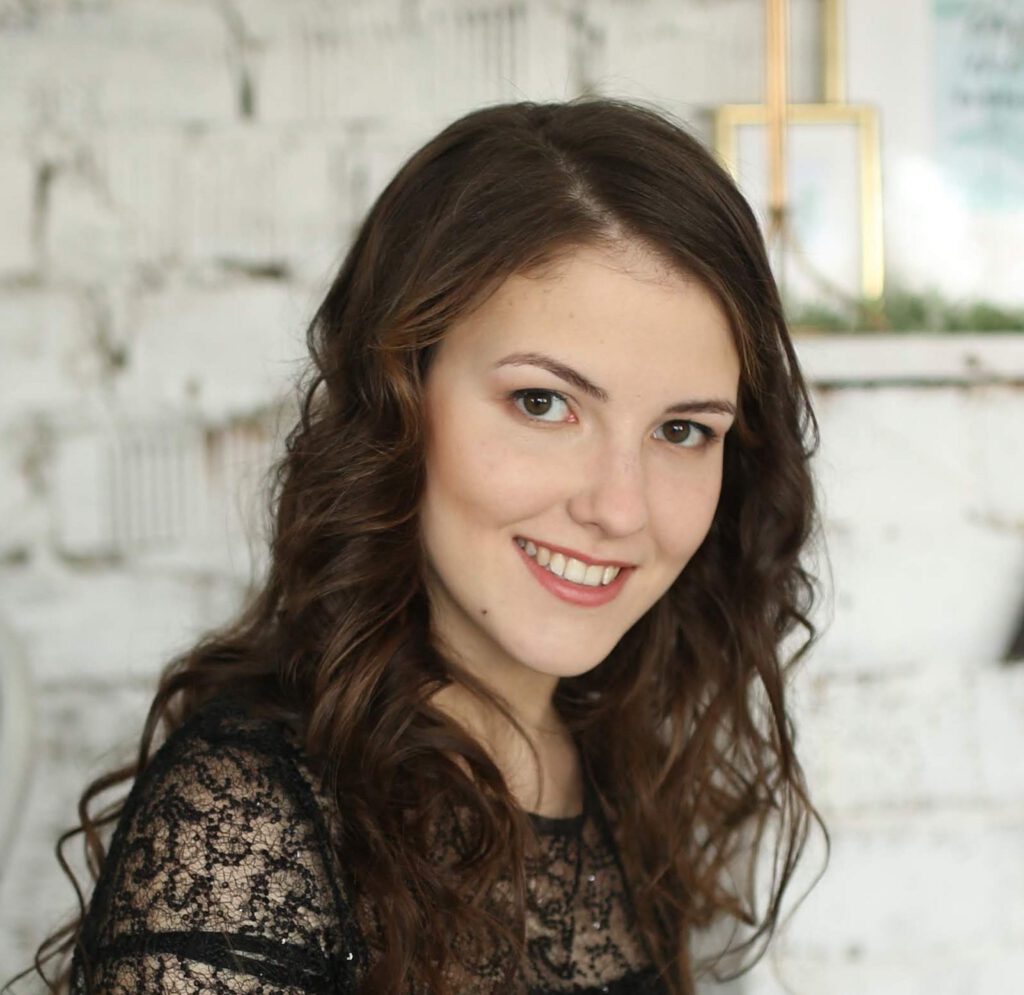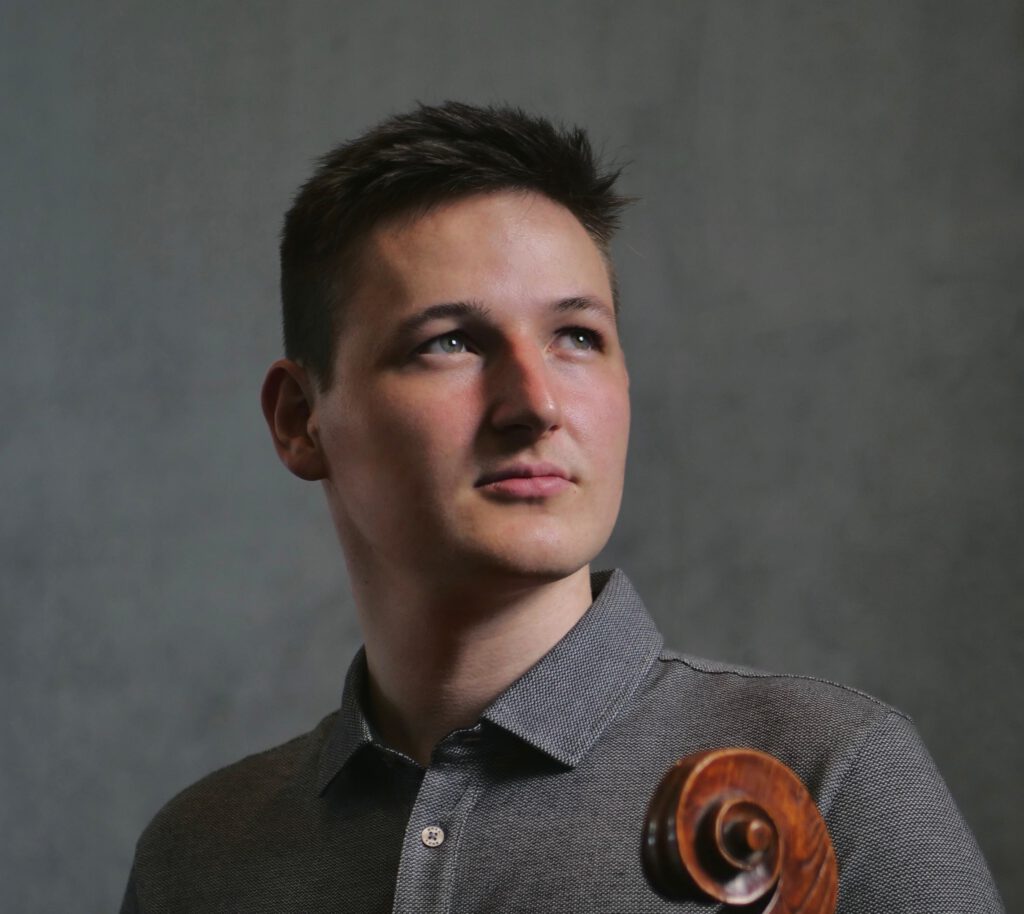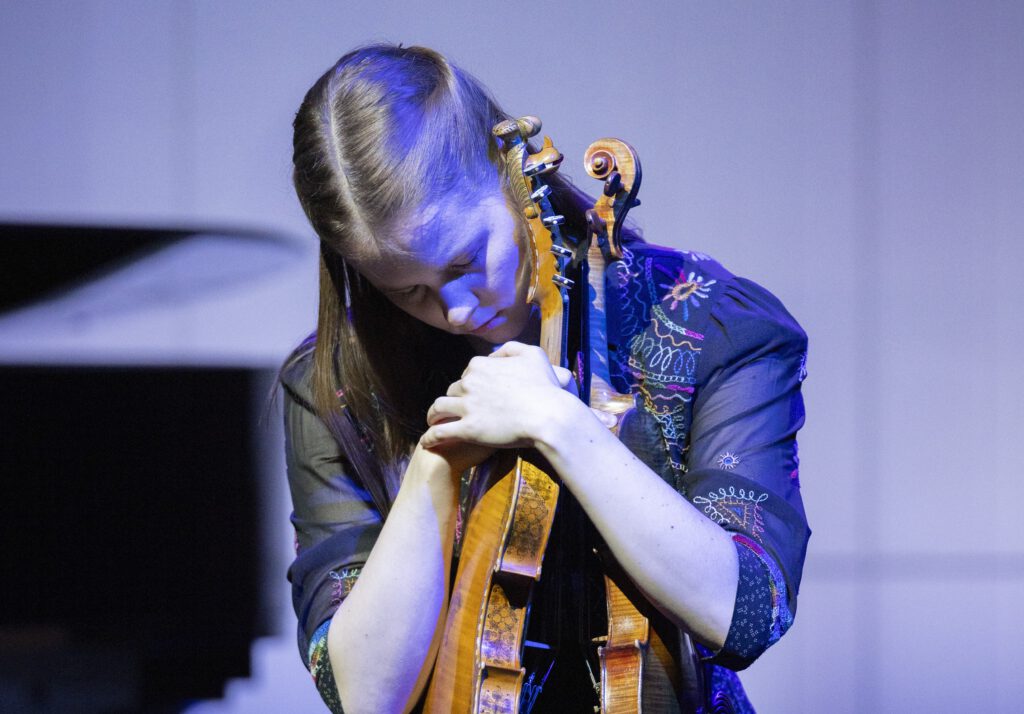“I have always been curious about working with various media”
mdw student Vlada Lysenko talks about her artistic work
“As a composer, creating something from my own perspective is the best way to work. Not reproducing something but rather expressing my own vision,” says the Ukrainian mdw student Vlada Lysenko. Vlada was granted the Artists Solidarity Program Europe scholarship from Austria’s Federal Ministry for European and International Affairs for this academic year. This scholarship programme is intended for artists whose work and existence are severely threatened by war. On 28 April 2025, the student showed her multimedia project as part of the programme’s concluding presentation at the mdw’s Klangtheater.
Vlada Lysenko was born in Odesa in 2004 and began playing piano at the age of five. She discovered her passion for composing early on: by the age of about five, she was already trying to write her own pieces, and when she was ten, she began taking lessons in composition. After completing her musical training at the Lyceum in Odesa, she studied piano and composition at the A. V. Nezhdanova Odesa National Music Academy. In 2022, Russia’s war of aggression against Ukraine forced her to flee her home city. At the mdw, she entered the MORE programme, which enables refugee students to attend classes there. After passing the entrance examination to become a degree student, she now studies media composition with Jorge Sánchez-Chiong, who was also her mentor for the project she submitted for the Artists Solidarity Program.
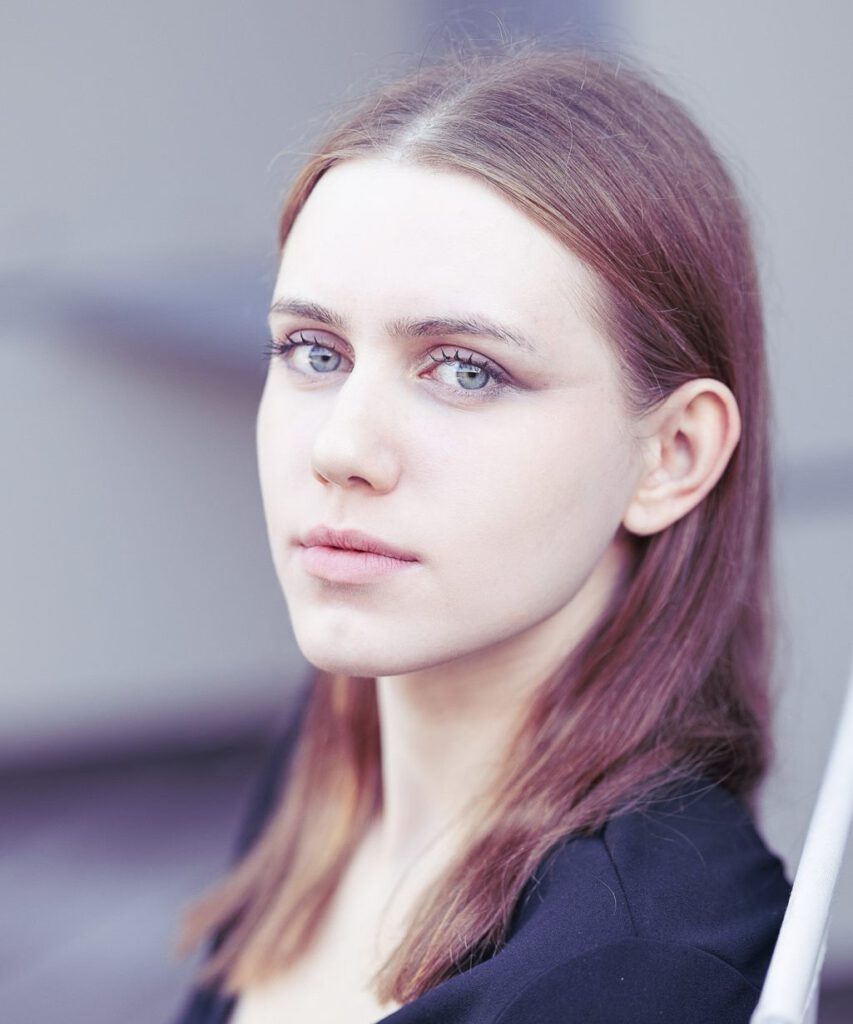
The point of departure for Vlada’s composition is the novella Intermezzo by the Ukrainian author Mykhailo Kotsiubynsky (1864–1913). “We read the novella in school, and even then, I had musical ideas for it and dreamed about composing an orchestral or chamber-music piece,” says the student. She has now made this reality: her piece was given its first performance by twelve musicians from the Platypus Ensemble. The multimedia experience was provided by visuals created for the work by Ukrainian artists. “I translate this literary work into music, and the visual artists translate it into images,” says Vlada. “I have always been curious about working with various media.” She performed the electronic part of the music herself onstage. The combination of instrumental and electronic music is another key aspect of her work.
So far, she is the only musician in her family.
I have been enthusiastic about music my entire life. When I compose, I can incorporate my creative ideas and my knowledge and fully exploit my potential. It is exciting and challenging,
says Vlada. The life of an artist and the creative process are also the themes of the impressionist story Intermezzo, which inspired Vlada for her composition. “The artist in the novella is overwhelmed by the strains and stresses of city life and flees to the countryside, where he experiences nature. I wanted to take this contemplation on the part of the artist and add my own perspective to it,” she explains. Her experiences with flight and war influence her creative work, she says: “The effects of the war are felt by everyone from Ukraine. Regardless of what subject I choose for my work, these effects find their way into my music, whether I want them to or not.” The young composer draws on various sources for her inspiration. “You never know what will inspire you next. This is why I’m so happy with what I decided to study. Media composition goes far beyond music,” stresses Vlada, who is also enthralled by visual art and paints and draws herself. She designed the cover of the sheet music for one of her pieces.
Vlada has already staged an electroacoustic solo performance with live interaction with the audience. The idea of being a composer and simultaneously a performer is one she would like to pursue further, also incorporating Ukrainian culture and the traditional instrument called the bandura. “Bandura players often used to improvise while they were playing, adapting the pieces to the respective situation. This flexibility is very inspiring for me,” says the artist. For her, the reference to historic bandura playing represents a connection between the past and present and between music and performance.
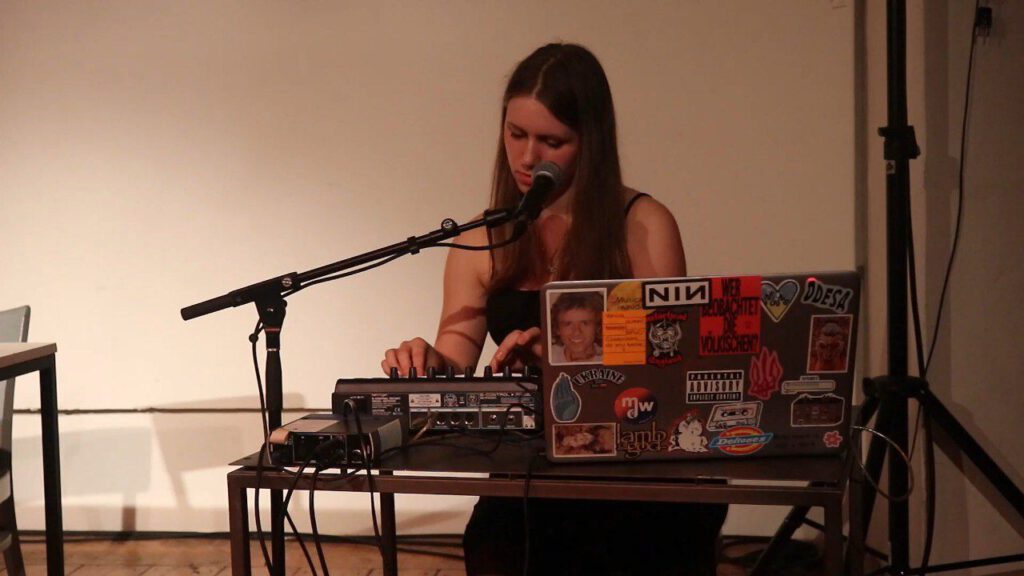
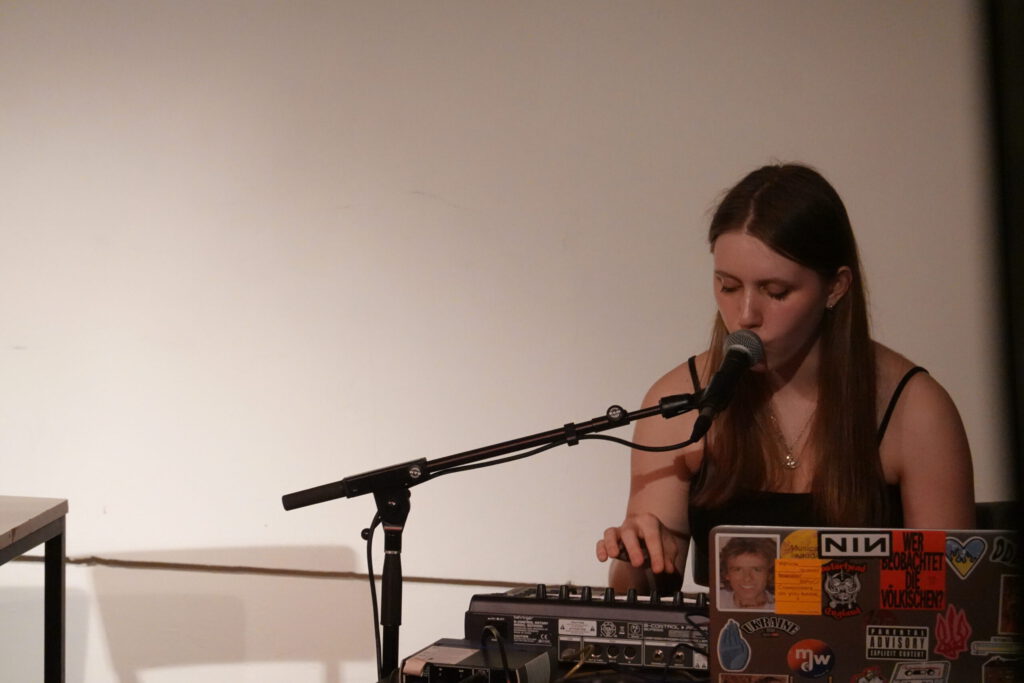
Vlada is nervous before live performances but
when I step onto the stage, this adrenaline rush comes. Through the communication with the audience, you create something unique. This energy exchange is an incredibly cool process,
explains the composer, who is looking forward to additional performances.
Visitors could get a sample of this energy on 28 April 2025, 5.30 p.m., at the mdw’s Klangtheater.
Text: Isabella Gaisbauer

